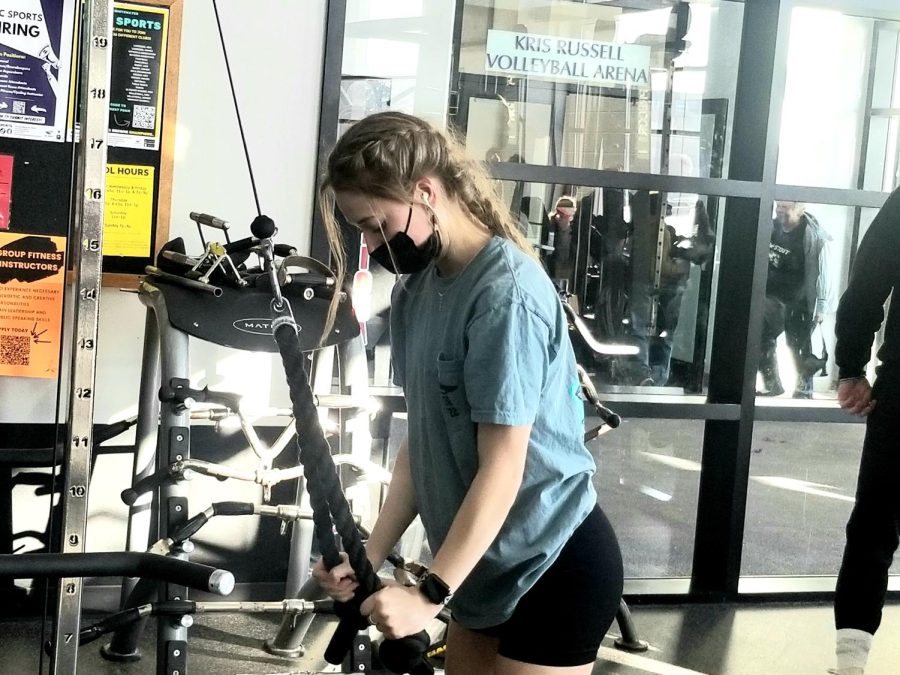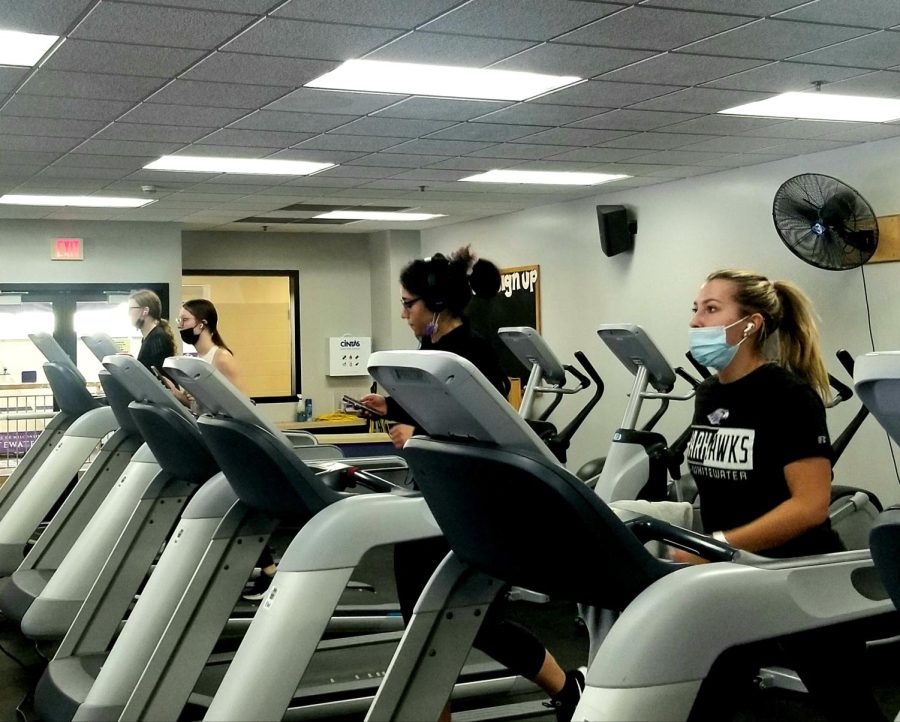Women in fitness
International Women’s Day feature
UW-W student Isabella LeCaptain works out on the pulley machine in the weight room of the Williams Center.
February 27, 2022
Fitness culture is not something women were welcomed into until the early 20th Century. The Roaring Twenties brought in a slew of women with no-nonsense attitudes and a goal to unite the sexes in terms of gender norms. This would mean that no woman would be refused entry into a gym or any other male dominated environment from those days forward. While there is still a long way to go in terms of gender inclusivity and impartiality towards the sex of any individual, times have gotten better. Evidence of this can be seen on the University of Wisconsin-Whitewater campus at the Williams Center gymnasium.
Here multiple women and men can be seen working out together in close proximity with little to no problems amongst each other or scandal. Students seem to reject the idea of “bro culture” and instead do their absolute best to encourage and support other fitness lovers around them, no matter their gender, or where they are in their fitness journeys.
“Everyone is pretty respectful here. I have never had to step in or anything like that. I’ve never seen anything bad happen in here before with the girls and guys especially. You see people helping other people really. Spotting for them, cheering them on and giving high fives to each other when someone lifts a heavy weight. I think just that the atmosphere here is so welcoming,” said sophomore fitness supervisor Rorie Wilson.
Unfortunately, intimidation and sexual harassment are still a very prevalent and nerve-wracking occurrences that happen to women while at public gyms. Solutions to this have ranged from women recording themselves as they work out as a safety precaution to even going as far as having “women-only” gyms. In the weight room of the Williams Center, males are not allowed to wear cut-off shirts in case large muscles might intimidate females.
Freshman Heather Blair and sophomore Ashley Monroe are two college students extremely passionate about fitness. They both have revealed how important they feel exercise is to not just their physical health, but their mental health as well. This non-discriminatory environment has benefited them both in numerous ways when it comes to their fitness journeys.
“With working out, you are healthier and able to get around better. I think exercising helps with my mental health too, so I think that is a good thing to work out for. I also just love the results that I get. I work out five to six times a week – my favorites are the squat rack and the stair master,” said Blair.
The life of a college student can be an especially stressful one for some. These ladies have taken the advice being thrown at them since they were young, and that is to get some exercise to maintain their health and wellbeing. Spending hours exerting one’s body to its extreme can sound like too much for some, but for women like these it’s an important part of their daily routine right next to morning coffee and lectures.
“I guess the feeling afterwards – especially with the endorphins – it takes my mind off of things. I work out about six days a week. It keeps you healthy and keeps your mind healthy. I like to do the squat rack to work my lower body,” said Monroe.
With the current cultural focus on fitness it might be hard to believe that not too long-ago women were fighting for the right to practically do anything deemed “manly” (hostile sexism) or “too physically exerting for a female to handle” (benevolent sexism). Now, more and more women are not seen as breakable porcelain china, but as the strong individuals that they’ve always been – regardless of how they’ve been viewed for centuries. And today that change is evident on the campus of the University of Wisconsin-Whitewater.













